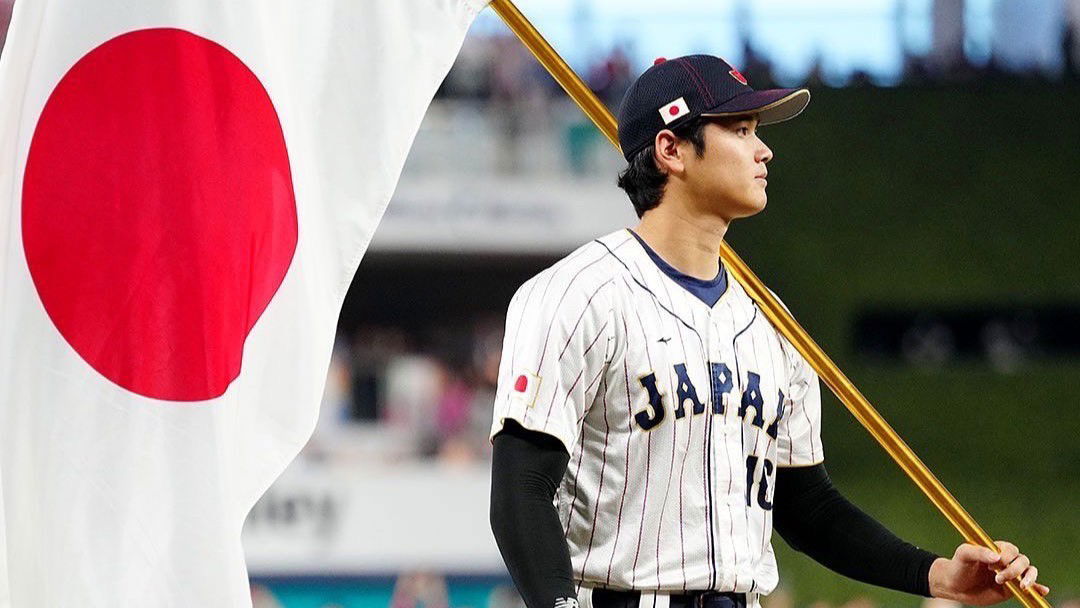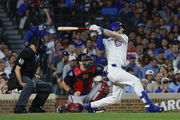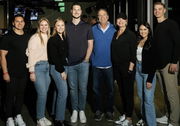

The crack of the bat may be reverberating through Dodger Stadium every other day, but it’s more than just America’s favorite pastime now; it has turned into the sound of an economic earthquake. Shohei Ohtani, the Japanese phenom who both pitches and hits like a dream, has not just revitalized the Los Angeles Dodgers—he’s ignited a tourism frenzy that’s been sweeping the City of Angels, turning it into a summer playground for Japanese travelers.
Watch What’s Trending Now!
“The energy in this stadium, as you can imagine, is just as crazy when he comes to play at home plate,” reporter Natasha Chen describes, capturing the electrifying atmosphere that surrounds Ohtani, especially for his devoted fans who have journeyed over 5,000 miles for a glimpse of their hero. “Yes, there have been Japanese baseball fans who have gone to Anaheim to see him play when he was with the Angels, but anecdotally, we are being told that this is a whole new level.”
“We were expecting a spike, but truly, nothing like this,” LA Dodgers’ President and CEO Stan Kasten admits, marveling at the Ohtani effect. Japanese travel agencies are scrambling to keep up, booking a mind-boggling 200 clients for every home game. It’s a testament to Shotime’s global appeal, drawing not just seasoned baseball fans but curious travelers eager to witness history in the making.
ADVERTISEMENT
Shohei Ohtani’s economic effect this 2023 is estimated at 45.7 billion yen which is around $300M usd
Through his endorsements, TV rights, ticket sales, tourism, sponsorships etc, ripple effect of Ohtani’s marketing power
He deserves that $500M++ contract https://t.co/ndzP70Upp8 pic.twitter.com/b48slPOwx4
— shobae 大谷翔平 ¹⁷ Ohtani Shohei ¹⁷ 🦋 (@shoheisaveus) October 11, 2023
But Shohei Ohtani’s impact transcends mere attendance inflation. Japanese tourists, fueled by the weak Yen and a thirst for the Unicorn’s magic, are spending big. Hotels like the Miyako, just minutes away from Little Tokyo, are getting fully booked during home game series, with the general manager beaming, “Yeah, yeah!!” when asked if he hopes this lasts for the next decade or so. Local businesses are also cashing in, offering “Shohei shots” and 50% off ramen bowls to celebrate each Ohtani home run. It’s a Shohei-themed economic party, and everyone’s invited.
Dodger Stadium itself has transformed into a cultural melting pot. Japanese-language tours now wind through the iconic venue four days a week, led by enthusiastic guides who once served Ohtani fans at his former team, the Los Angeles Angels’ stadium. The culinary landscape has undergone a Shohei-inspired makeover, with Japanese delights like Kurobuta Pork Sausage Dogs, Chicken Katsu, and Octopus Takoyaki with a side of guacamole and cheese or salsa now vying for attention alongside the classic Dodger dog. It’s a culinary home run—a testament to the Unicorn’s ability to bridge cultures through food and exuberance in the city, which serves as a crossroads for Latin American and Asian communities.
ADVERTISEMENT
Little Tokyo itself—the heart of L.A.’s Japanese American community—is pulsating with renewed energy. Restaurants and shops are overflowing with visitors eager to soak up the atmosphere and experience authentic Japanese culture. A towering mural of Shotime, dubbed “LA Rising,” has become a pilgrimage site, drawing fans who marvel at its artistry and use augmented reality to see their hero come to life, slashing homers beyond the quintessential American boundary. “It has been a hard hit during COVID,” artist Robert Vargas reflects, proud of his contribution to revitalizing the AAPI (Asian American and Pacific Islanders) community.
ADVERTISEMENT
The cultural impact of Shohei Ohtani, fueled by shared passion and lasting memories
The Ohtani boom isn’t just about economics or cultural exchange. It’s about the human connection—the shared joy of watching a once-in-a-generation talent. Takaya Hizume, a Japanese mother whose son also plays baseball, feels a deep connection to Ohtani, as if he were “Japan’s son,” her sentiment echoing through the bleachers as Japanese fans chant “Gambatte, Ohtani-san!” and wave homemade signs wrapped in Dodger-Blue nails declaring their love for their hero. It’s a scene that transcends language and borders, a testament to the unifying power of sports.
So many fans came to see the Shohei Ohtani mural reveal
Fans got your back Shohei! We support and believe you ❤️
pic.twitter.com/Z2woEkddea— shobae 大谷翔平 ¹⁷ Ohtani Shohei ¹⁷ 🦋 (@shoheisaveus) March 28, 2024
“Whether the fans are from his home country, second-generation Japanese Americans, or have no connection to Japan at all, it’s a unifying moment,” reporter Natasha Chen of CNN observes. This unity is evident in the diverse crowds that flock to Dodger Stadium, a microcosm of Los Angeles itself. It’s a moment as American as apple pie, yet infused with the distinct flavor of Japan’s own umami palate.
ADVERTISEMENT
And it’s not just the fans who are reaping the benefits. Japanese media outlets have descended upon L.A. in flocks, eager to document Shohei Ohtani’s every move. Stadium signs are now translated into Japanese, and local businesses are adapting to cater to the new clientele. In a whirlwind of cultural exchange, it stands as a testament to the global reach of both Ohtani and the Dodgers brand.
Top Stories
Kyle Tucker Handed Blunt Reality Check as Blue Jays Shift Focus to Bolster Vladimir Guerrero Jr.

3 Reasons Bo Bichette’s Offseason Market Seemingly Collapses After Blue Jays’ Sudden Shift

Blue Jays To Ditch Kyle Tucker For Beloved Toronto Star As Toronto Bids To Bolster Vladimir Guerrero Jr., Per Insider

Massive Blue Jays Shakeup Incoming as Ross Atkins Refuses to Sacrifice Bo Bichette–Kyle Tucker, Deems Insider

Who Are Kyle Tucker’s Parents? All about Mike Tucker and Lisa Fernandez

Just in 2023 alone, Los Angeles welcomed a staggering 230,000 visitors from Japan, marking a remarkable 91.7% increase from the previous year. Adam Burke, the president and CEO of Los Angeles Tourism, emphasizes the city’s commitment to not only attracting Japanese tourists but also enriching their experience. “Our goal with this market would be to bring more Japanese to the city and certainly have them experience LA’s sports teams, but also expand their horizons to experience other authentic and diverse LA neighborhoods and encourage longer lengths of stay,” Burke explains.
The Shohei Ohtani effect has turned Los Angeles into a must-visit destination for Japanese tourists, with an estimated 80% to 90% of them making a pilgrimage to Dodger Stadium during their trip, according to the Los Angeles Tourism and Convention Board. The financial impact of this is significant, with Japanese visitors required to spend more than their country’s value of Yen, injecting a steady flow of U.S. Dollars into the local economy, proving to be yet another example of the power of sports to drive economic growth and cultural exchange.
ADVERTISEMENT
But the Ohtani boom isn’t just about baseball games and tourist Dollars—it’s also about creating lasting memories and fostering cultural understanding. Many Japanese visitors are exploring beyond Dodger Stadium, venturing to iconic L.A. landmarks like Santa Monica Beach and Hollywood, curious about experiencing the city’s diverse neighborhoods, indulging in its culinary scene, and immersing themselves in its vibrant culture. This enriching experience for both the visitors and the city itself is tied by one single thread—their love for their homeland’s “son,” Shohei “The Unicorn” Ohtani.
ADVERTISEMENT
ADVERTISEMENT
ADVERTISEMENT

